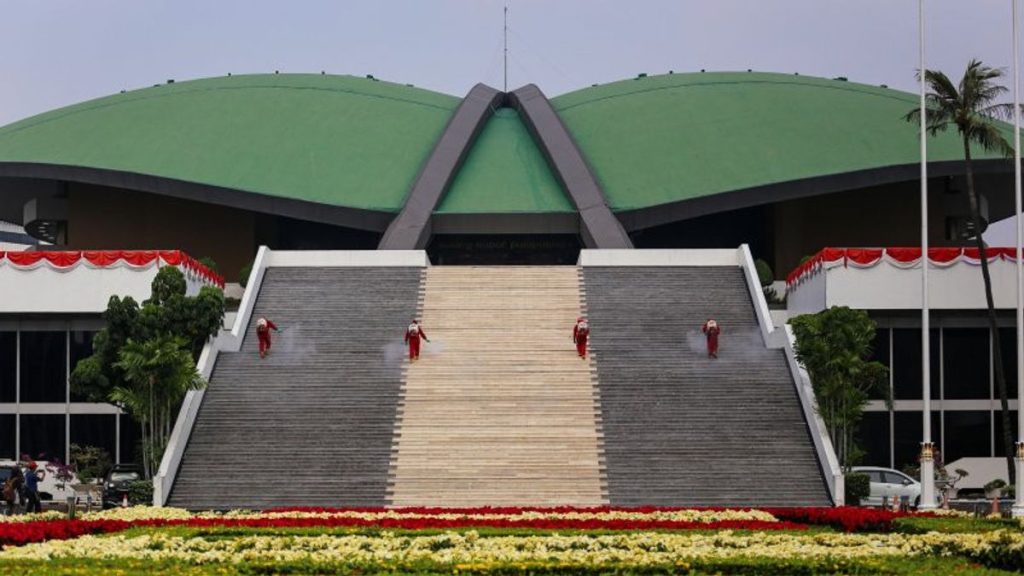JAKARTA – The DPR Plenary Meeting ratified the Draft Law on the Third Amendment to Law Number 18 of 2017 concerning Protection (RUU P2MI) as the DPR’s initiative bill today.
In this bill initiated by the Legislation Body (Baleg), the DPR encourages the Migrant Workers Protection office abroad to access People’s Business Credit (KUR).

This bill is also deemed necessary to ensure the protection of Indonesian migrant workers abroad.
“The principle of the P2MI Bill is the presence of the state in providing protection for migrant workers abroad. So as a form of protecting the constitutional rights of citizens,” said Member of the Legislative Council (DPR) Baleg Ahmad Irawan. Thursday, March 20.
Irawan said that this constitutional right is the mandate of the 1945 Constitution which stipulates that the state is obliged to protect the entire nation and all of Indonesia’s bloodshed. As well as guarantees for all Indonesian citizens to work and get a decent life.
In order to accommodate this, Irawan said the DPR Baleg pushed for a revision of the P2MI Law.
According to him, the revision of the P2MI Law is also needed considering that currently the Government under President Prabowo Subianto has formed a nomenclature for the new ministry which specializes in managing migrant workers, namely the Ministry of Protection for Indonesian Migrant Workers (KP2MI).
“That means that actually the President is focused and concerned about the protection of migrant workers, with the formation of a new special ministry,” said Irawan.
In addition to strengthening the authority of the Ministry of P2MI, Irawan said, this bill will also discuss the importance of several things that are regulated in order to maximize state protection for Indonesian migrant workers. Including the proposed establishment of PMI representative offices abroad, which so far only have labor attaches (atnaker).
“One form of strengthening its protection is that in the future the Migrant Workers Ministry will form representative offices in countries that have many of our migrant workers there,” said Irawan.
Irawan explained that the P2MI representative office will have the authority to take care of all PMI issues, including providing direct assistance and protection for migrant workers who have problems in the country where they work. For this reason, he considered, special provisions were needed regarding this matter.
“It is important to add norms related to assistance, mediation, advocacy to provide legal assistance to Indonesian migrant workers by the Central Government and/or Representatives of the Republic of Indonesia as well as the Indonesian Migrant Workers Placement Company (P3MI),” he explained.
Then, continued Irawan, the P2MI Bill will also regulate structural and transformational changes related to the problems faced by PMI. Starting from before leaving, while working, and when returning to Indonesia as a process of reintegration with the community. The purpose of the P2MI Bill is also to reduce illegal immigrant workers.
“Well, our problem regarding PMI is that many illegal migrant workers, whether not registered, are not recorded, or not documented, or do not meet the requirements. Is it about visas or other required documents,” he said.
“This bill will provide convenience by simplifying PMI requirements before leaving, so the management of required documents with a single authority at the Ministry of P2MI,” continued Irawan.
The Golkar politician hopes that the P2MI Bill can also reduce cases of scams or fraud that have recently occurred where many Indonesian citizens go abroad illegally because of the lure of a large salary, but instead they are exploited and tortured by the employer. Many of these cases were found in Myanmar, Thailand, and surrounding countries.
The DPR Baleg also wants to strengthen the framework of cooperation, such as government to government (G to G) and business to business (B to B). Moreover, the government has just revoked the moratorium on sending PMIs to Saudi Arabia.
“For example, if PMI goes to Saudi Arabia, the company receiving PMI must be clear. So it’s not people per person anymore, it’s not people to people anymore,” said Irawan.
On the other hand, Irawan highlighted the large number of prospective migrant workers who often deal with moneylenders to finance the processing of documents abroad or other preparations needed by PMI, such as language courses or competency training needed in their destination countries.
“Usually, in preparation for overseas, it can be Rp. 60-80 million, some even sell hundreds of millions of rice fields or land, then that’s it, some fail to leave. It’s a pity,” he said.
Irawan said that the Golkar faction as one of the initiators of the P2MI Bill also proposed capital assistance for PMI candidates through access to people’s business loans (KUR). Loans through KUR can be paid through installments.
“So when he works, he can pay installments or installments. They can use KUR access to pay, for example, course fees, training costs, continue making passports, taking care of visas, all kinds of things,” said Irawan.
This step needs to be taken to reduce the burden of departure and training costs before leaving abroad. KUR access can avoid migrant workers from being trapped in the debts of moneylenders,” he said.

